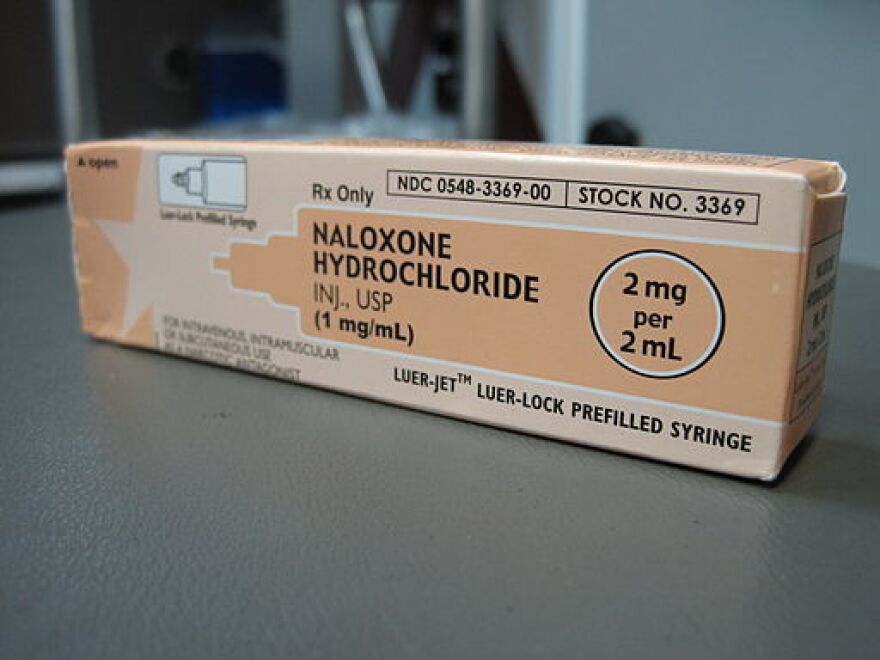When Justin Phillips lost her son Aaron to a heroin overdose on October of 2013, she didn’t know there was a drug that could have saved his life. Now she’s a passionate advocate for expanding the availability of that drug, naloxone, in Indiana through her non-profit Overdose Lifeline. At a recent Indiana House committee meeting, she told lawmakers that she doesn’t want other parents to go through what she did.
“Aaron was a brother, a friend, a talented quarterback, and an adolescent without a fully-formed decision-making center in his brain,” she said. “Aaron only used heroin for four short months. And he really wanted to quit,” she told the crowd. When Aaron decided to use one more time while waiting to get into treatment, he experienced a fatal overdose, Phillips recounted. He was twenty.
In 2014, a state law expanded nalaxone's use from paramedics, who have used it for decades, to first responders. (Since the law was signed in March of last year, police have administered naloxone 89 times). A bill currently in the statehouse, SB 406, authored by Senator Jim Merritt (R-Lawrence), would allow doctors to write naloxone prescriptions for friends and family members of addicts, and also permit organizations like Overdose Lifeline to distribute the drug without a prescription. After passing in the Senate, SB 406 passed in House committee on Wednesday, April 1.
Administered as an injection, or as a nasal spray, naloxone, also called Narcan, can bring someone from unconscious and barely breathing to sitting upright and speaking within about a minute. Applicable whether the overdose is from heroin or prescription painkillers, naloxone attaches to the brain’s opioid receptors, blocking opioids from access, and stopping their effect almost instantly. It works best if it’s administered quickly, and is not addictive.
Like other parts of the country, Indiana has seen a decline in deaths from prescription drug overdoses, but an increase in heroin overdose deaths since 2011. The two trends are related. A state prescription drug monitoring program called INSPECT now keeps track of names and birth dates every time a Hoosier picks up a prescription narcotic at a pharmacy. INSPECT prevents individuals from filling multiple prescriptions for the same addictive drugs at the same time. Many heroin users say they switched from prescription opioids because heroin is cheaper and easier to access.
An earlier version of the bill would have made naloxone subject to INSPECT, but advocates argued that would have discouraged addicts and their families for asking for the medication, for fear of stigma or arrest. In the current version, first responders and medical professionals are required to report to the state trauma registry, an anonymous system, each time they administer nalxone. Individuals purchasing by prescription would not be tracked.
Justin Phillips says that she and other advocates are thrilled with the bill in it's current form. "The Public Health Committee worked with us to put it into the form we need to save lives across the board, with no stigma attached," says Phillips.
Senator Merritt says this legislation is an early step in Indiana's fight against heroin addiction, but it can lead to stronger measures: “What we need is how many prescriptions of Narcan have been purchased in a year. We have to get rid of the stigma of addiction, that it's an illness or a sickness. And we have to show that it's widespread.” If those two objectives are accomplished, he says, it will open up the possibility of state funding for treatment.
The ammended bill now must pass the full House, and then return to the Senate floor.
For more on naloxone, read our related story.
Andrea Muraskin can be reached at amuraskin@wfyi.org or (317) 614-0444. Follow her on twitter: @Andrea_Muraskin.





